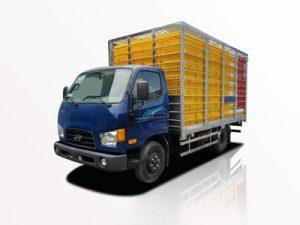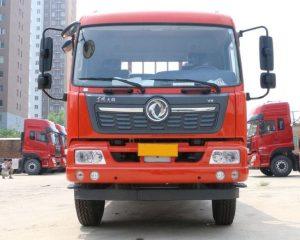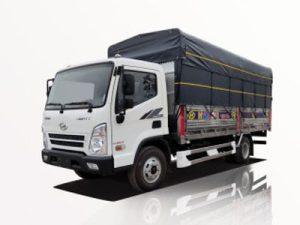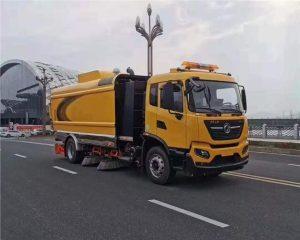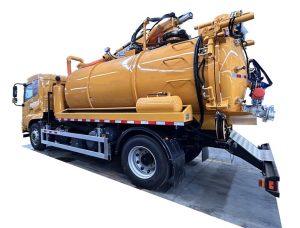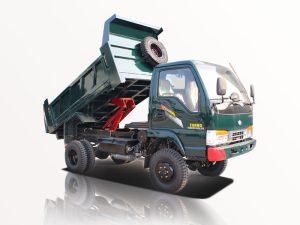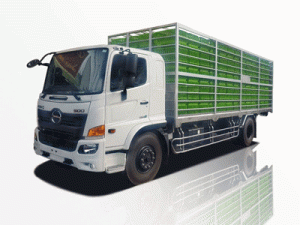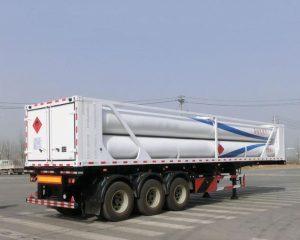Monday to Saturday - 8:00 -17:30
Everything You Need to Know About 3 Wheeled Trucks
Introduction
3 wheeled trucks are becoming increasingly popular for their unique design, versatility, and affordability. These vehicles, often recognized for their compact size and maneuverability, provide an efficient solution for transporting goods, particularly in urban environments. In this article, we will explore the various aspects of 3 wheeled trucks, including their benefits, types, uses, maintenance, and much more. Whether you are considering purchasing one or simply want to know more about them, this guide will provide you with comprehensive information.
What is a 3 Wheeled Truck?
A 3 wheeled truck is a motor vehicle that has three wheels instead of the standard four. These trucks can vary significantly in size, shape, and function, but they generally consist of a cabin or a platform for the driver and a bed or cargo area for transporting goods. They are available in both electric and gasoline-powered models, catering to a wide range of needs.
History of 3 Wheeled Trucks
The concept of three-wheeled vehicles dates back to the late 19th century. The initial designs were simple and primarily used for personal transport. Over the years, advancements in technology led to the evolution of these vehicles into the more robust 3 wheeled trucks we see today. They have since found their niche in various industries, including agriculture, delivery, and even recreation.
Benefits of 3 Wheeled Trucks
3 wheeled trucks come with a variety of advantages that make them an appealing choice for many users. Below are the key benefits:
1. Maneuverability
Thanks to their compact size and lightweight design, 3 wheeled trucks can easily navigate tight spaces and congested city streets. This makes them ideal for urban deliveries and indoor transportation.
2. Cost-Effective
3 wheeled trucks are generally less expensive than their four-wheeled counterparts, both in terms of initial purchase price and ongoing operational costs. Fuel efficiency is typically higher as well, especially for electric models.
3. Versatility
These trucks can be used for various purposes, from delivering goods and transporting materials to waste management and recreational activities. Their adaptable nature allows users to modify cargo areas as needed.
4. Easy to Maintain
With fewer complex systems and parts than larger vehicles, 3 wheeled trucks tend to require less maintenance, leading to lower long-term costs.
5. Eco-Friendly Options
Electric 3 wheeled trucks provide an eco-friendly alternative, helping to reduce carbon emissions and being more sustainable for urban environments.
Types of 3 Wheeled Trucks
3 wheeled trucks come in various models suited for different purposes. Understanding these types can help you choose the right one for your needs.
1. Cargo Trucks
Designed primarily for transporting goods, cargo 3 wheeled trucks come equipped with a flatbed or enclosure for secure transport. They are commonly used in deliveries and logistics.
2. Utility Trucks
Utility 3 wheeled trucks are versatile vehicles used in maintenance and service operations. They often have space for tools and equipment, making them ideal for construction sites and landscaping.
3. Recreational Vehicles
Some 3 wheeled trucks are designed for recreational use, such as off-road adventures or outdoor activities. These vehicles typically have enhanced suspension and rugged designs.
4. Electric Models
Electric 3 wheeled trucks are gaining popularity, offering an energy-efficient solution for businesses looking to reduce their carbon footprint. These models can have various configurations and capacities.
Comparison Table of 3 Wheeled Truck Types
| Type | Purpose | Typical Use |
|---|---|---|
| Cargo Trucks | Transport goods | Delivery services |
| Utility Trucks | Maintenance and service | Construction, landscaping |
| Recreational Vehicles | Outdoor activities | Off-road adventures |
| Electric Models | Eco-friendly transport | Urban delivery |
Common Uses of 3 Wheeled Trucks
3 wheeled trucks are designed to be multi-functional. Here are some of their most common applications:
1. Delivery Services
Many businesses use 3 wheeled trucks for last-mile delivery due to their compact size, which allows them to navigate city streets more efficiently than larger vehicles.
2. Agriculture
Farmers benefit from 3 wheeled trucks as they can easily transport tools, produce, and other materials across fields and orchards, especially in rural areas where larger vehicles may struggle.
3. Municipal Services
Cities often utilize utility 3 wheeled trucks for tasks such as waste collection, street maintenance, and other services due to their agility and ability to operate in tight spaces.
4. Retail and Food Delivery
In the food and beverage sector, 3 wheeled trucks are widely used for mobile cafes and food trucks, providing an innovative way to serve customers directly.
Choosing the Right 3 Wheeled Truck
When selecting a 3 wheeled truck, several factors should be considered to ensure that you make the right choice for your needs:
1. Purpose
Identify how you plan to use the truck. Will it be for delivery, agriculture, or recreation? Different designs cater to different needs.
2. Capacity
Consider the cargo capacity you need. Make sure the truck can handle the weight and size of the loads you plan to transport.
3. Fuel Type
Decide between electric or gasoline-powered models based on your operating environment, budget, and emissions preferences.
4. Maintenance Requirements
Look into the maintenance schedules and requirements of different models to determine which one fits your operational capabilities.
5. Budget
Evaluate the purchase price along with potential operating costs, including fuel, insurance, and maintenance, to determine what fits within your budget.
Maintenance Tips for Your 3 Wheeled Truck
To keep your 3 wheeled truck running smoothly, regular maintenance is essential. Here are some tips to follow:
1. Regular Inspections
Perform routine checks on tire pressure, fluid levels, brakes, and lights to ensure everything is functioning correctly.
2. Cleaning
Maintain the vehicle by keeping it clean, both inside and outside. Regular washing helps prevent rust and other forms of deterioration.
3. Schedule Servicing
Adhere to manufacturer-recommended service intervals for inspections and repairs, which can help catch potential issues early.
4. Monitor Performance
Pay attention to any changes in the vehicle’s performance, such as unusual noises or handling issues, and address them promptly to avoid bigger problems.
Cost Considerations
The overall cost of owning a 3 wheeled truck includes purchase price, fuel, insurance, and maintenance. Let’s break these down:
1. Purchase Price
The cost of a new 3 wheeled truck can vary significantly based on the model, features, and brand, ranging from $5,000 to $20,000 or more.
2. Fuel Costs
Gasoline models will incur ongoing fuel costs, while electric models may require investment in charging infrastructure but offer lower operational costs.
3. Insurance Expenses
Insurance rates for 3 wheeled trucks can differ based on usage, location, and safety features, so it’s essential to shop around for the best rates.
4. Maintenance and Repairs
Budget for periodic maintenance and potential repairs to keep your truck in optimal condition. Regular servicing can prevent costly repairs in the future.
Future Trends in 3 Wheeled Trucks
The 3 wheeled truck market is evolving, influenced by technological advancements and changing consumer preferences. Here are some emerging trends:
1. Electric Revolution
The shift towards electric vehicles is expected to accelerate, with more manufacturers developing eco-friendly 3 wheeled trucks to meet demand.
2. Smart Technology
Integration of smart technology, such as GPS and telematics, is becoming commonplace, enhancing efficiency and monitoring capabilities for fleet managers.
3. Customization
As the market grows, there will likely be increased options for customization, allowing businesses to tailor 3 wheeled trucks to their unique operational needs.
4. Sustainability Initiatives
With heightened awareness of environmental issues, manufacturers are focusing on sustainable materials and practices in the production of 3 wheeled trucks.
FAQs
1. Are 3 wheeled trucks safe to drive?
Yes, 3 wheeled trucks are considered safe when driven appropriately, maintaining proper weight distribution and following traffic regulations.
2. How much can a 3 wheeled truck carry?
The carrying capacity of a 3 wheeled truck varies by model; many can carry between 500 to 1,500 pounds, depending on design and specifications.
3. What are the insurance requirements for 3 wheeled trucks?
Insurance requirements can differ based on location and usage; it’s recommended to check with your local insurance provider for specific regulations.
4. Can I convert a 3 wheeled truck to electric?
While conversion kits may exist, it’s best to evaluate existing electric models that meet your needs rather than attempting a conversion.
5. How do I find parts for my 3 wheeled truck?
Parts can usually be found through the manufacturer’s website, authorized dealers, or specialized auto parts retailers that stock components for niche vehicles.
6. Do 3 wheeled trucks require special driving licenses?
Licensing requirements depend on your region; in many areas, a standard driver’s license suffices, but it’s essential to check local regulations.


